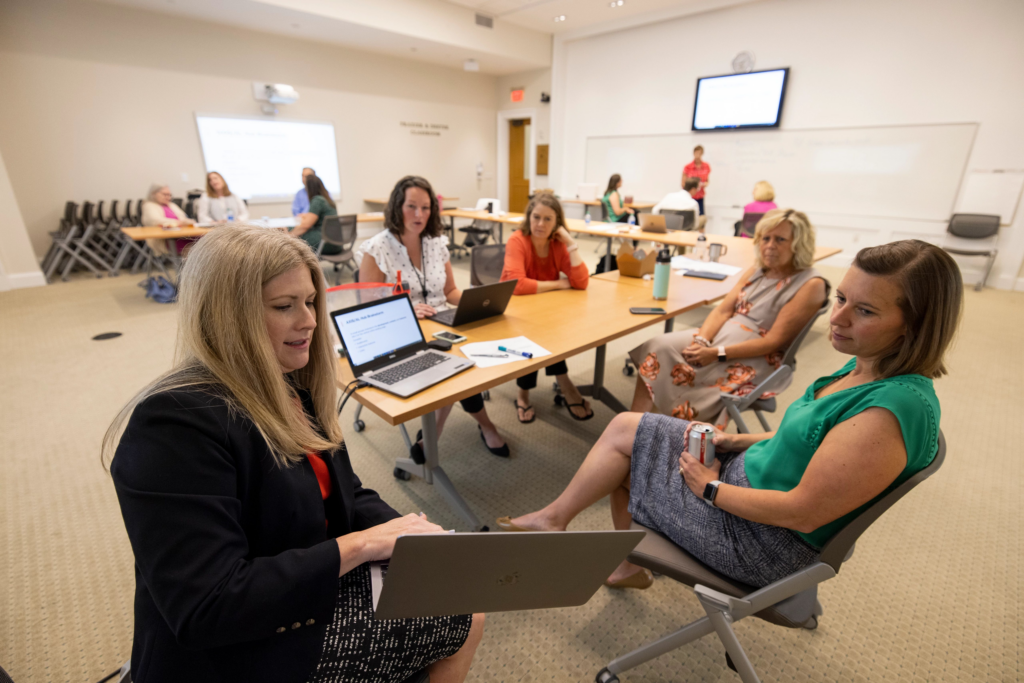Scholars from across campus attend assessment Think Tank

On Jan. 11, the Office of Instruction and Provost’s office jointly sponsored a General Education Assessment Results Think Tank at the Georgia Center. Department heads and faculty whose course or department was represented in the pilot round of general education assessment were invited to attend.
Think Tank attendees produced robust, insightful dialogue on ways to improve the process of assessing student learning in general education, as well as specific ideas for addressing the competencies within specific courses and programs.
Two key takeaways from the day were:
- Faculty expertise and involvement are central to the entire General Education assessment cycle, from identifying assignments to reviewing results.
- Assessing students’ acquisition of general education competencies by evaluating course-embedded work is a key advance in the assessment process. This allows for targeted, course-level improvements.
The goals of the half-day Think Tank were to bring together an interdisciplinary group of scholar-instructors to review the general education assessment process, reflect on the data from the pilot, and brainstorm opportunities to improve student learning.
Participants came from a variety of disciplines, including anthropology, communication studies, ecology, English, geography, history, international affairs, political science, history, and music.
According to Dr. Leah Carmichael from the International Affairs program, the activities and assessment rubrics employed during the Think Tank were extremely helpful for her given her role as she considered assessment as the undergraduate coordinator in her department.
Dr. Scott Ainsworth, department head and professor in Political Science, was similarly reflective: “[These data are] helpful toward reconstructing our student learning outcomes. I think I will ask my students what critical thinking is. I think I might also ask faculty the same thing.”
The general education assessment plan measures students’ learning in five competency areas: written communication, oral communication, quantitative reasoning, critical thinking, and moral reasoning. Student work is collected from a variety of courses addressing each competency and evaluated by trained faculty scorers using corresponding AAC&U VALUE rubrics.
For more information or questions about general education assessment, contact Dr. Katie Burr, Associate Director of Assessment, at [email protected].
